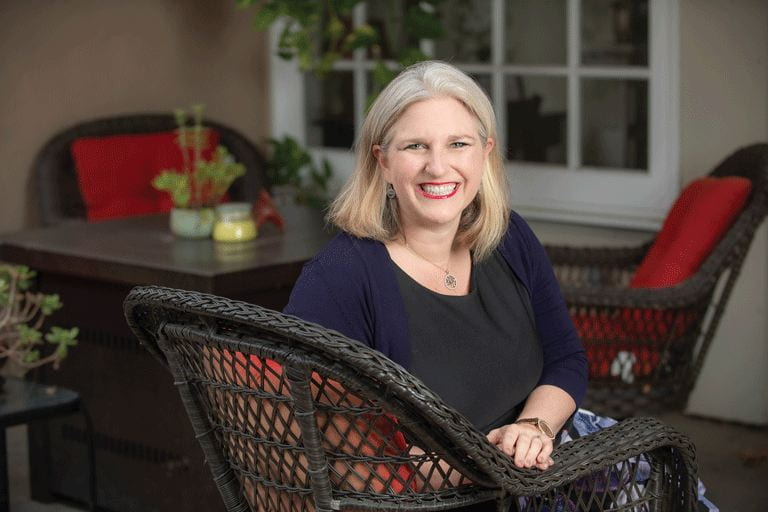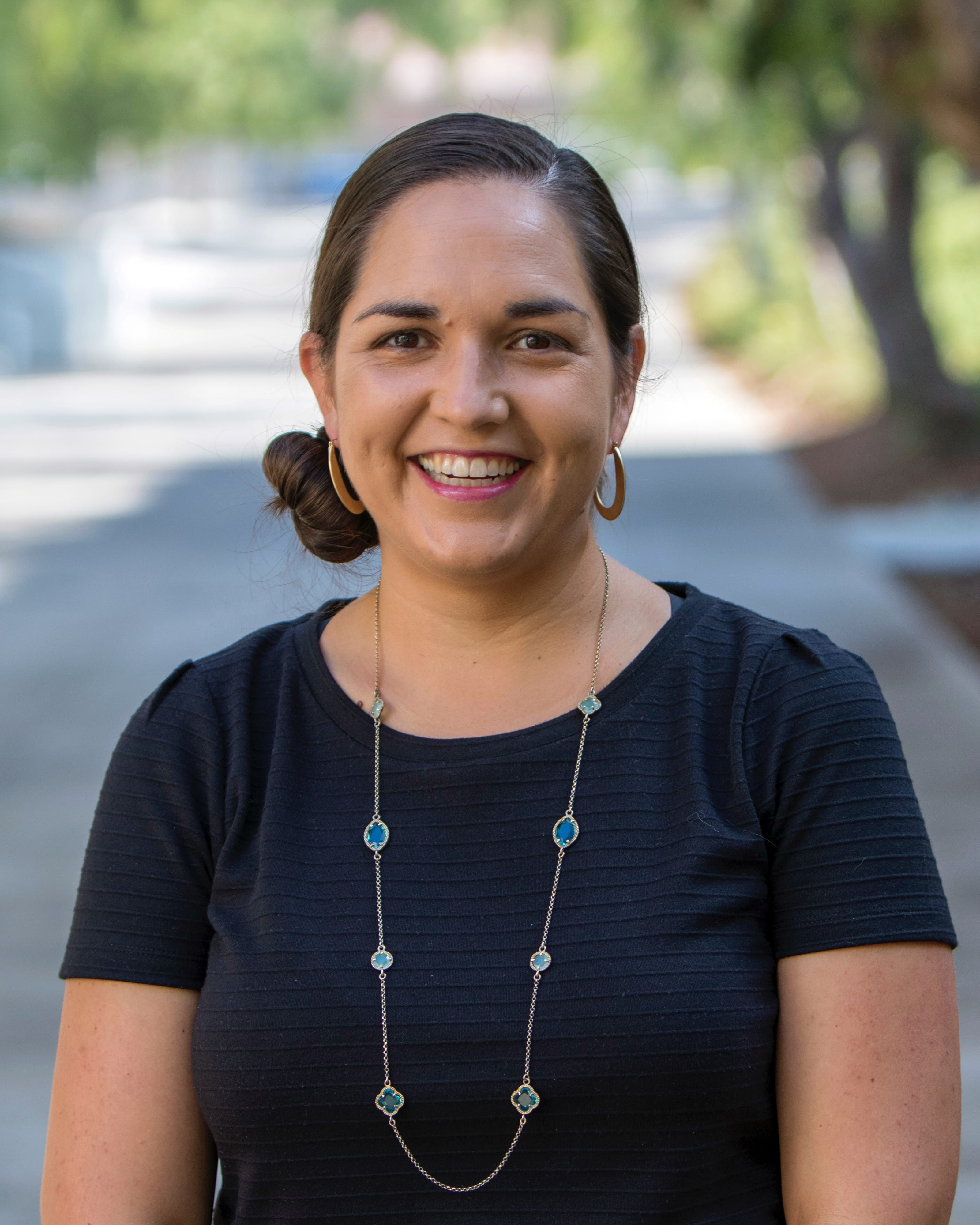In Sickness and in Health
Alumna provides hope and support for couples dealing with mental health conditions
For Erin Ramachandran, the honeymoon was over – literally. She and her husband, Keith, had just spent their first week as newlyweds in October 2007 in Lake Chelan, Washington. They had hiked, enjoyed tastings at area wineries and visited the nearby German-themed tourist town of Leavenworth.
The giddiness of their time together, however, came to an abrupt halt when they returned home to Sacramento. Keith started cleaning the house constantly. He spent hours scrubbing the floors and washing the dishes, leaving his wife feeling ignored and baffled. “He wasn’t like this during the year and a half we dated,” says Ramachandran, who graduated from UCI in 2004. “I felt like there had been a bait and switch.”
As time passed, Keith’s behavior intensified. He cleaned for up to 16 hours a day and could no longer sleep or hold down a job. Ramachandran insisted that her husband seek medical help. “He was diagnosed in two minutes,” she says, “with classic obsessive-compulsive disorder.”
It was the beginning of an ongoing mental health journey, with four additional diagnoses plus suicidal ideation and other trials that have tested the couple’s relationship over the past 14 years. Ramachandran found few resources for how spouses could support both their significant other’s mental health and their marriage. So she created her own.
Through her book, Mental Health Strong, and its associated nonprofit organization, website and virtual conferences, Ramachandran is providing support for couples with mental health and addiction challenges.
According to the National Alliance on Mental Illness, 1 in 5 U.S. adults experience a psychiatric disorder. Seventy-five percent of these conditions begin by age 24.
In seeking care, Keith recognized that he’d had an earlier episode of OCD when he was 10. His compulsion at that time was not cleaning but schoolwork. However, being obsessive about studying was valued by his parents, Ramachandran says, so he went undiagnosed.
Right before their wedding, Keith had been disowned by his parents for changing his faith. The couple realized that this traumatic event, combined with the stressors of moving to a new city, starting a new job and getting married, likely triggered the OCD resurgence.
As Ramachandran struggled to juggle her husband’s highs and lows with her rising career as a healthcare program director at Kaiser Permanente, she continually searched for books or websites that could help her but came up empty.
“There are a lot of resources for marriages; many of them talk about communication and meeting each other’s needs,” Ramachandran says. “But with mental illness, your spouse can’t meet your needs because they can’t even function themselves.”
She wasn’t surprised that a multinational survey found that marriages with a mental health condition in the mix are 20 to 80 percent more likely to end in divorce. Ramachandran and Keith had separated for a while, but they worked with a therapist to move forward together.
“People have asked me, ‘You don’t have children; why do you stay in the marriage if your needs aren’t being met?’” she says. “I respond that if I got cancer, Keith would not leave me. We got married in sickness and in health. If I truly believe that this is a brain disorder, which I do, then that means the same thing: in sickness and in health. Therefore, we’re going to try to get the right help for it.”
Ramachandran approached that challenge in the same way she had since her days as a social ecology major at UCI: assessing problems and devising novel solutions. She was the inaugural manager for the UCI women’s rowing club, handling not only team logistics but alumni events. Ramachandran credits her proclivity for problem-solving for her ascent within the national office of Kaiser Permanente, where she became a healthcare program director at age 31 and now heads the market-facing mental health and wellness program. In that position, she tries to understand what customers expect of mental health and addiction care and improve their experience. “Every few years, I’ve been promoted to a new role where I find a problem, create the solution from scratch and then deploy it,” she says. “It’s just part of my DNA.”
Mental Health Strong, published in 2019, pairs Ramachandran’s own experience in handling such issues as helping versus enabling and navigating difficult situations with the resources for addressing them. It provides templates for setting boundaries, preparing for relapses, maintaining a healthy relationship and other critical tasks.
The Mental Health Strong website connects readers with an even broader range of resources. A calendar shares links to Ramachandran’s upcoming virtual leadership summits on marriage and mental health. A table lists dozens of physical, emotional, spiritual and relational tools. Spouse assistance sheets for 11 different diagnoses offer an overview of each condition, spell out potential impacts on the marriage, and supply helpful words and phrases for the journey.
“If someone is struggling in a relationship, I want them to know that there is hope,” Ramachandran says, adding that her husband is now working full-time with OCD symptoms greatly reduced. “Support continues to grow. We can all play a part simply by overcoming the stigma and being accepting and compassionate toward people with mental health issues.”
8 Practical Steps for Staying ‘Mental Health Strong’
Make the diagnosis clear. You need to know which problem you’re solving to approach it in the correct way.
Help for you and your spouse. “Like on an airplane, you need to put your oxygen mask on before you help your partner with theirs,” Ramachandran says. “The healthier my approach on working through my anger and frustration, the better I can help him.”
Set some boundaries. Establish what you’re willing and unwilling to do.
Take time for self-care. Focus on what recharges you and keeps you healthy.
Remember to grieve. “Your relationship is different than what you thought it would be,” Ramachandran says. “Allow yourself to grieve the loss of expectations so you can move forward.”
Own the journey. Accept that you will have more extreme ups and downs than other relationships.
Not again. Expect relapses to happen.
Gift of mental health. Look for the positives that have come out of your situation. “I’m more empathetic and compassionate than I might have been otherwise,” Ramachandran says.


